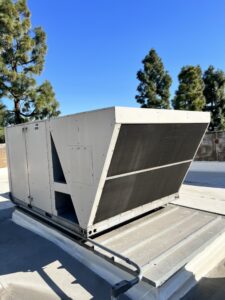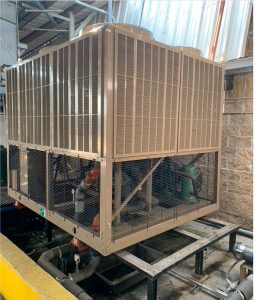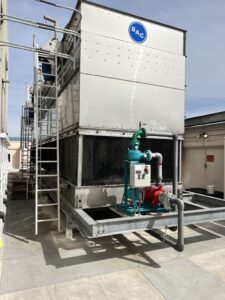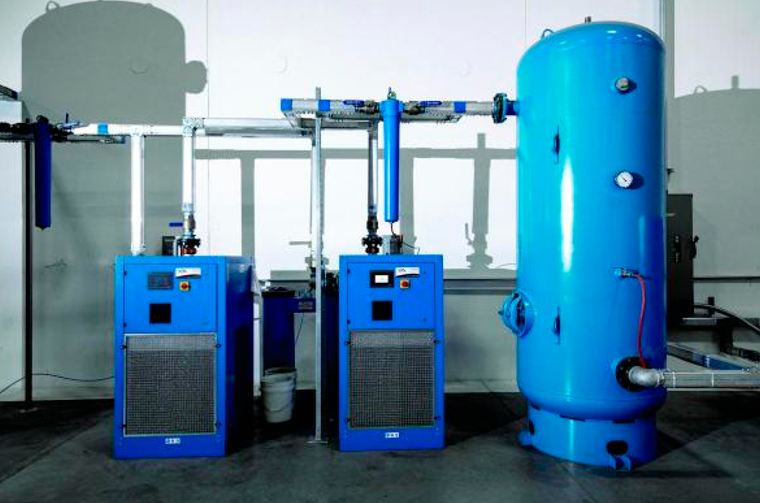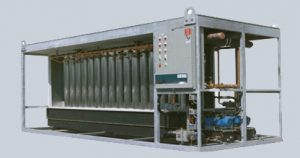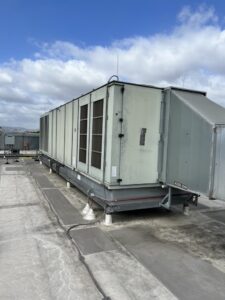The chillers are essential tools for many industries as they offer the correct cooling for industrial processes. The main purpose of such systems is to eliminate heat produced during the processes to facilitate temperature management and improve the efficiency of operation of the equipment and the machinery. The choice of a process chiller is an important step for many industries because it directly affects the efficiency and performance of various production stages.
In this blog, we will cover the top 10 selection aspects of a process chiller, including the importance, the different types, the benefits, the impact of chillers on the environment, and the customization of these chillers.
Understanding the Importance of Process Chillers
Process chillers are an integral part of the industrial process where keeping the temperature and cooling is the most essential requirement Removal of heat generated during manufacturing or production using process chillers is vital to ensuring that not only the machinery, equipment, but also the products achieve optimum performance.
These mechanisms create a stable environment, prevent overheat and improve the energy efficiency of the industrial processes. Identifying the importance of process chillers is the beginning of a good process of a well informed choice of the most suitable system for a particular industrial application.
Is your process chiller operating at its peak efficiency? Don’t wait for a breakdown – take control with our expert maintenance services
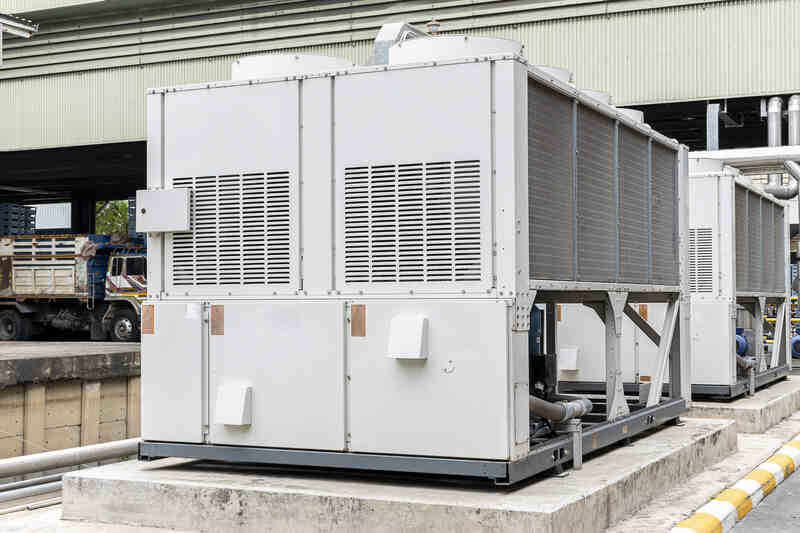
The Role of Process Chillers in Different Industries
Process chillers are one of the major players of the industrial and commercial chilling applications that are customized for each sector. Process chillers in manufacturing sector are utilized to cool off machines and devices, which leads to the effective operation of production facilities. They function as waste heat exchangers and play a crucial role in maintaining optimal operating conditions, which guarantees equipment longevity by avoiding breakdowns.
The process chillers are used in the printing industry for the purpose of cooling down the printing tools to avoid overheating and to retain the stable state of the printing process. They remove the heat caused by the printing process, which results in printing out pictures of high quality and the machine working smoothly.
Industries that manufacture plastics majorly use process chillers to cool down molds, extruders, and other equipment used in the process. These coolers provide the facilities of accurate temperature control with which its production of optimal plastic products can be carried out.
In the pharmaceutical industry process chillers are a must component for temperature control during the manufacturing, storage and shipping of drugs production. They are a key element in production of pharmaceutical products, inhibiting temperature variations that may lead to medication tampering.
Process chillers just like that are extremely important in food production industry, where temperature and food safety are of prime importance. Process chillers play the key role in ensuring that the food ingredients, food products, as well as the fermentation processes are carried out in a perfect and hygienic manner by reducing temperatures of ingredients or products.
Also, the process chillers are broadly employed in other industrial sectors for instance chemical manufacturing, automotive and the HVAC systems where exact temperature control and cooling are needed to avail operational efficiency.
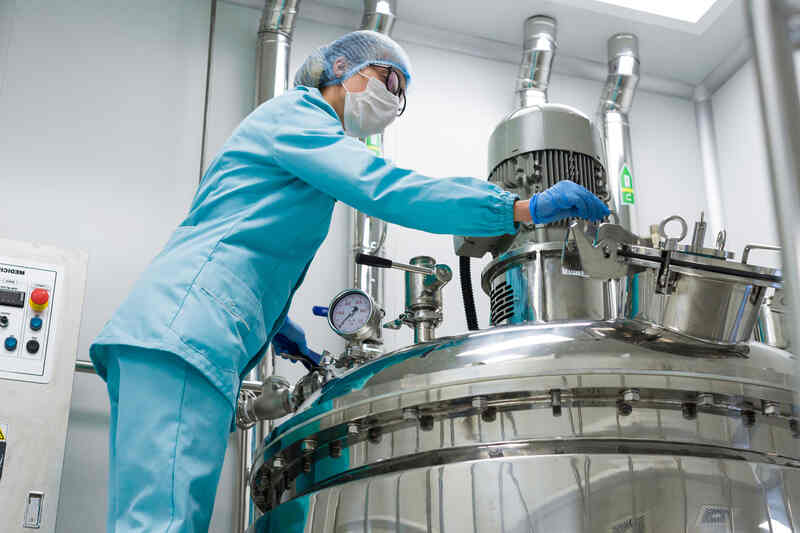
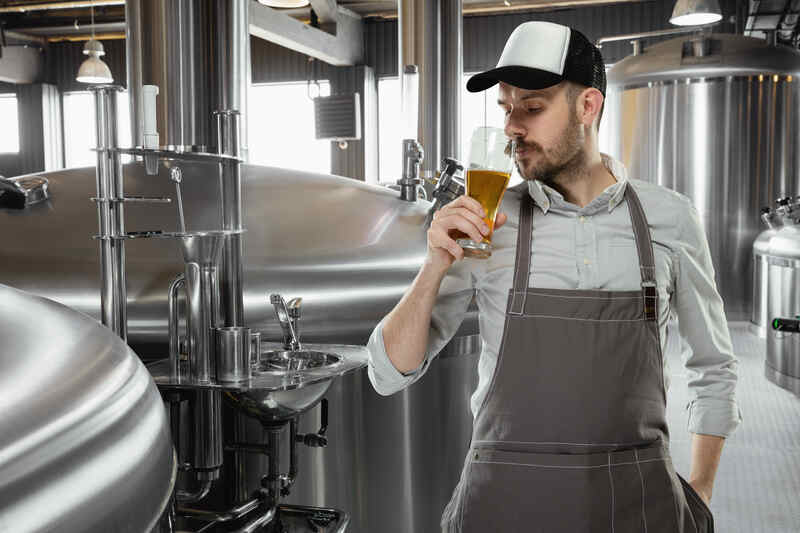
Key Benefits of Using Process Chillers
Process coolers provide a wide array of advantages, rendering them a frequently used accessory for industrial applications. Here are some key advantages of using process chillers:
Energy Efficiency:
- Process chillers are created to ensure efficient cooling services with minimization of energy consumption and hence lower expenses of external electric company.
- They stand out for the quality of its technology, with the maximum possible power efficiency, allowing units consumption and global system improvement.
Cost Savings:
- Through efficient cooling of machines and removal of too much heat, process chillers thereby increase the quality of machinery and are able to extend their lifespan without substantial repairs.
- These systems are realized by cutting the bills with less energy expenditures and hence retaining the overall cost in the run-time operation.
- Temperature Regulation:
- Process chillers have the advantage of exerting very accurate temperature control of industrial machinery so that it returns a reference temperature value.
- This temperature control hence enhances the product quality, prevents an equipment overheating and guards against production deviations.
- Environmental Impact:
- Currently, the latest process chiller which employ relatively LNGs tend to be safer for the ozone layer and less harmful to the greenhouse gas emissions.
- The industrial buildings are provided with energy-efficiency utilities by process chillers which in turn give the facility a chance to have less impact on the environment, the essential to the sustainability agenda.
Custom Solutions:
- The chillers are designed to be highly flexible in order to customize the chilling process to the particular cooling needs for each industrial application. This aims at better compatibility and better results across all manufacturing processes.
- By offering such customizable solutions, which are perfectly tailored to the needs for cooling the different equipment and that meet the production efficiency and quality standards, the company expresses its concern for each partner and is also ready to propose the kinds of tailor-made solutions which best match their specific needs.
Furthermore, the process chillers bring some important advantages to the table when talking about reliable cooling performing the purpose of temperature control enhancing machines performance and ultimately improving overall productivity in factories.


Different Types of Process Chillers
Process chillers are available in different types with the each of them equipped with certain unique features and capacities to cool them. Familiarity with the various types of process chillers assists in choosing the best performing system for manufacturing applications.
There are two main kinds of process chillers – air-cooled process chillers and water-cooled process chillers. Let’s have a look into the features and benefits of both the systems.
Air-Cooled Process Chillers
Air-cooled process chillers are largely preferred by the industry for their small scale and adaptability in the different application areas. These devices use atmospheric air as the cooling agent, thus avoiding all external water sources or cooling towers.
The heat produced by those industrial activities is transferred into the ambient air through a heat exchanger, so that the temperature could be controlled and the air cooled.
The most important benefit of air-cooled chiller systems is their effortless installation and mobility. These chillers are not complex in their layout and no water connections are required, this makes them an ideal choice especially in places where getting water is either a challenge or impractical. Besides that, the air-cooled process chillers are relatively small, thus making them the best option for industries, that do not have enough space.
For their cost efficiency, air cooled chillers are a common choice, as they are free of water equipment which require water-chiller systems, cooling towers, and the condenser water pumps.
Such units require less maintenance, their initial cost is lower and these chillers provide much better control over the cooling operation.
Water-Cooled Process Chillers
Water-cooled process chillers use water as the cooling medium, making them the perfect coolants for industrial processes. These units have a cooling tower, a water chiller, and a condenser water system that take away the heat generated during the manufacturing process. Providing continuous temperature control water-cooled process chillers are an ideal way to have efficient industrial equipment cooling.
A major advantage of the water-cooled process chillers is their high heat transfer capacity. The water source that the chillers employ allows the system to withdraw more heat, providing better cooling performance. These chillers have greater capacity to handle more cooling loads; therefore, they are suitable for industrial applications where a large cooling load is needed.
We are the leading specialists in water-cooled process chillers that offer substantial long-run cost savings. Despite the higher initial costs resulting from the need for cooling towers and water chiller systems, they can offer lower electricity consumption and higher cooling efficiency in the long run. These systems are also more efficient at places with higher ambient air temperatures due to the better heat transfer of water than air.
Furthermore, the stainless-steel material of the water-cooled process chillers will ensure their durability and reliability for industrial applications with special water quality restrictions. They provide an accurate temperature control that is crucial for the companies to have a good quality of their processes down.
Looking at Air-Cooled Chillers versus Water-Cooled Process Chillers.
It is essential to understand how air-cooled and water-cooled process chillers are different for the identification of the best suitable option. The water chiller system features great cooling efficiency, hence, becomes a powerful industrial process cooling solution. Both air-cooled and water-cooled process chillers are intended for different ambient temperature conditions where cooling is either well above or below the ambient temperature. The duplicity of information is thereby avoided.
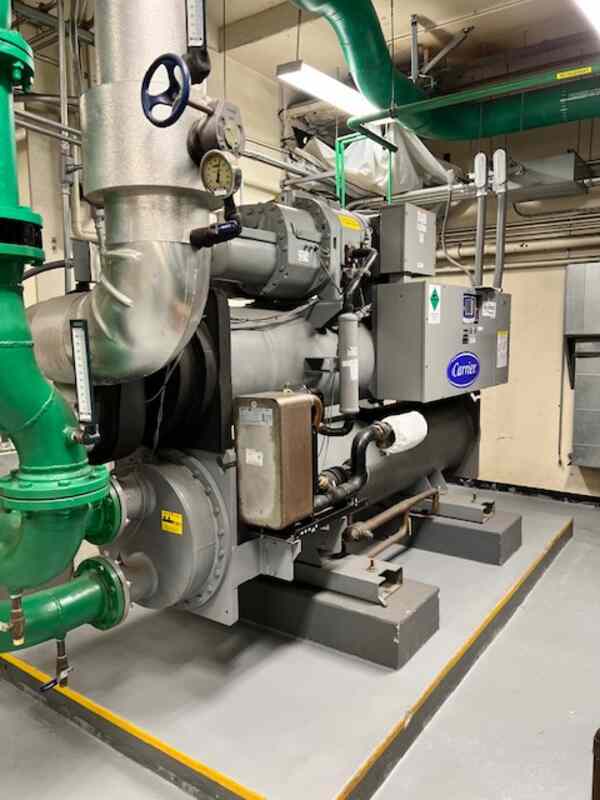
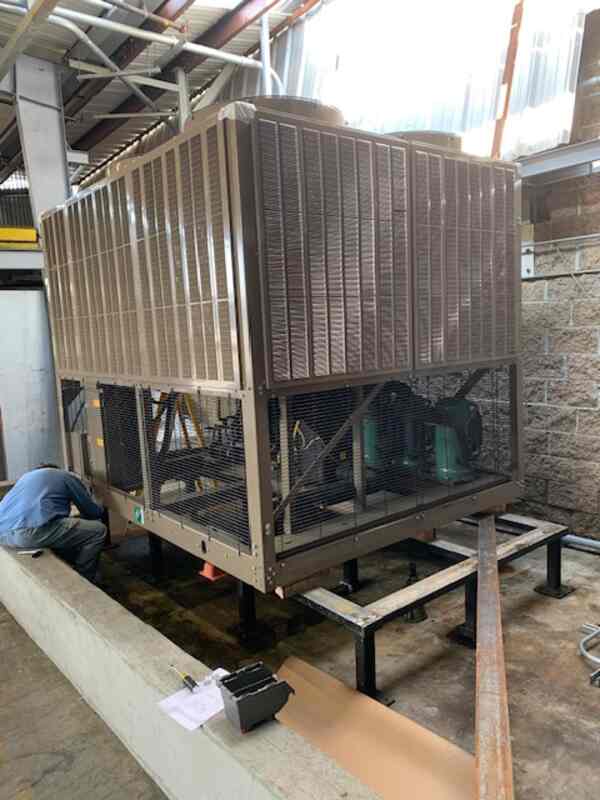
Factors to Consider When Selecting a Process Chiller
In making a decision about which process chiller to use, it’s of utmost importance to give an underscore to the condenser water and cooling tower that’s popular in the United States. Whereby these parameters are considered together with scroll compressor efficiency, air versus liquid cooling abilities, and state of the art features, the chances of making a right choice will increase significantly.
The Specific Cooling Needs of Your Application
Knowing where the cooling water will come from is the key in choosing whether airside or waterside process chillers would be selected. Understanding the refrigerant systems specification will become the foundation for the selection of the chiller for a given process. Facility industry-specific cooling systems needs for process chillers shall be accomplished by this company to provide custom solutions. The need to cater the cooling system of the manufacturing plant during the selection of the chillers is highly important. The ability of small-sized process chillers to meet numerous industrial cooling requirements in addition to being highly flexible is contributed by them.
Energy Efficiency
Energy efficient chillers plays a very important role in minimizing environmental issues while comfortably enabling cooling processes. The cooling method itself and the mechanism of heat exchangers should be clear for the selection of the most energy-efficient chillers. Modern refrigeration systems substantially reduce the disruption of the environment. The caretaker for energy-efficient chillers leads to cost savings thus labeling them as sustainable solutions for industrial cooling applications. The control of the cooling water’ temperature in process chillers allows effective and eco-friendly industrial process cooling.
Cost and Budget Considerations
When selecting process chillers it becomes important to purchase units or types of units that will fit into the provided budget, thus leading to cost savings. The evaluation of refrigeration systems in terms of the long-term cost ensures the right chiller choice is made. Moreover, the impact of environmental regulation fee on refrigerant price is another factor which is quite important while making decision. Total cost of ownership, which also comprises maintenance cost, helps make better budget considerations. Additionally, the energy efficiency of chillers play a considerable role in the cost and budget calculations.
The Role of Refrigerants in Process Chillers
The refrigerants expectantly perform the very function in the Process Chillers by absorbing the heat from the process and discharging it through a cooling tower or condenser water. In the U.S. there is a widespread use of chiller processes, which often use updated variances of refrigerants in the liquid form for greater temperature stability. These are the refrigerants that work by means of air cooling or water cooling, for example, scroll chillers operation, thus working in concert to a wide range of industrial applications.
Common Types of Refrigerants
The most commonly used refrigerants in industrial process chillers are the liquid ones like ammonia and water being one. Substances which can be termed as refrigerants comprise of the products such as R-134a, R-410A, R-123 and more. HFCs and HCFCs are widely used over refrigerants like carbon dioxide due to greenhouse effects in chillers, but because of environmental concerns, a rise in carbon dioxide refrigerants usage is witnessed. Furthermore, alternative refrigerants, i.e. HFOs, which may be embraced in the future by the chillers technology, are expected to impact chiller technology also. These are the milestones that are paving the way on the art of acquiring new chiller skills.
Trends in Refrigerant Usage
The low-GWP refrigerant issue becomes the mainstream chiller industry with the raising awareness of its environmental impact. Refrigerants which are blends have recently grown in their demand resulting from high cooling efficiency on the one hand and natural refrigerants which have been chosen as a result of environmental protection on the other hand. Refrigerant recycling and reclaiming used refrigerants are becoming more implementable for environmental protection. Comprehensive innovations in modern coolant production and use provide the stage for more environmentally friendly alternatives in the industry of chillers.
The Impact of Climate on Process Chiller Selection
The right process chiller is chosen depending on which climate it will be in. In hot regions, air-cooled chillers are more energy efficient because of better heat exchange at higher temperatures. As against water-cooled chillers, these chillers are suitable for areas with cooler climates because they effectively release heat. Additionally, the climate determines the type of water used to condenser, which is preffered to be solid in cold climates. In the United States, between states, depending on weather conditions chiller choice is strongly linked to the use of scroll chillers due to their superior technology. The influence of climate varies the efficiency and effectiveness of process chiller selection, which is a key factor.
The Effect of Ambient Temperature
Extreme ambient temperatures are susceptible to heavily affect chillers cooling capacity, which consequently impacts their efficiency. The selection of process chiller requires considering designs with the high ambient temperature tolerance for normal operation. Industrial performance of chillers while the ambient temperature varies is affected which makes the compact units necessary for temperature regulation in workplaces of different climate. In addition to that, chiller system reliability and lifespan are among the factors which will directly be influenced by ambient temperature.
Water Quality and Availability in the Region
When assessing water quality and availability, the water source and the match with evaporative cooling must be considered. Furthermore, water availability and source temperature should be among the key considerations when analyzing chiller performance. Stainless steel process water chillers are often employed to underline water quality criteria. Water chiller cooling systems partially determine environmental impact and sustainability. On top of this, water chiller technology plays a crucial role in the chemical, food, and printing industries. More importantly, the cutting-edge cooling tower and condenser water provide an effective way of maintaining water quality and chiller efficiency in the United States.
How Size and Scalability Affect Chiller Selection
Scalability and size of chiller is determinant for purchasing. In relation to the chiller size, the cooling tower dimensions should fit just right to make certain of the optimal performance. Furthermore, the condensing water is going to be designed in such a way that the possibility for scalability in the future can be factored in. America nowadays adopts high-tech chillers filled with types of liquid and operated by air cooling or scroll compressors so the scale is flexible.
Determining the Correct Size of Process Chiller
When choosing industrial process chillers, the size of the process equipment is an important factor. Efficient temperature control in manufacturing can be achieved by employing cooling equipment and heat exchangers. The capacity of the refrigeration system is always related to the cooling needs of industrial manufacturing processes. The expansion valve is influenced by temperature regulation and the sizing of the chiller. The type of industrial process chillers gets affected by machine tools and injection molding machines, hence, these factors need to be taken into account.
The Advantage of Scalable Chillers for Growing Operations
The introduction of portable chiller units in industrial manufacturing makes achieving greater process scalability possible. Compactness of process chillers makes operations flexible and adaptable pinpointing its competitive edge for growing businesses. In addition, the systems for pumping place a very vital role on the expandability of the industrial cooling process, thus contributing to the operation scalability. Through the deployment of cutting-edge cooling methods, scalable chilling systems improve the capability of manufacturing industries to expand and promote their productivity and efficiency.
Customization Options for Process Chillers
Customization for process chillers can be accomplished by a myriad of temperature control solutions. Which include sleek designs and sophisticated technologies, therefore, chiller systems could be customized to fit a manufacturing industry need. By means of temperature control to the liquefying refrigerant and the process of cooling, all the components are customizable guaranteeing perfect process cooling for the industrial equipment. These customization options also spread to cutting edge features, specifically designed for various industrial applications.
How Much Customization is Too Much?
Balancing between the need for tailored customizations and cost effectiveness is a key factor in deciding on a process chiller unit. Think about the eco-friendly customizations and appropriate cooling solutions for reduced consumption. Make sure the customization is moderate to avoid unneeded complications in cooling systems.
If unsure, contact HVAC (Heating, Ventilation, and Air Conditioning) specialists or hit up chiller manufacturers. They can give you tips or various requirements that your application ought to be able to handle.
Through skilled examination of these parameters, you can reduce the hassle of chiller selection and ensure for your facility an optimal performance, energy efficiency with long term reliability. You should also remember that every application is different and that customizing selection process to the unique set of needs is very important for achievement.
Ice Bear Inc. stands as a reliable partner for businesses seeking excellence in maintenance, installation, and repair services. By following best practices and utilizing cutting-edge technologies, Ice Bear Inc. contributes to the seamless operation of process chillers, ensuring that businesses can rely on a highly functioning process chiller. Ice Bear Inc. is the name to trust.

